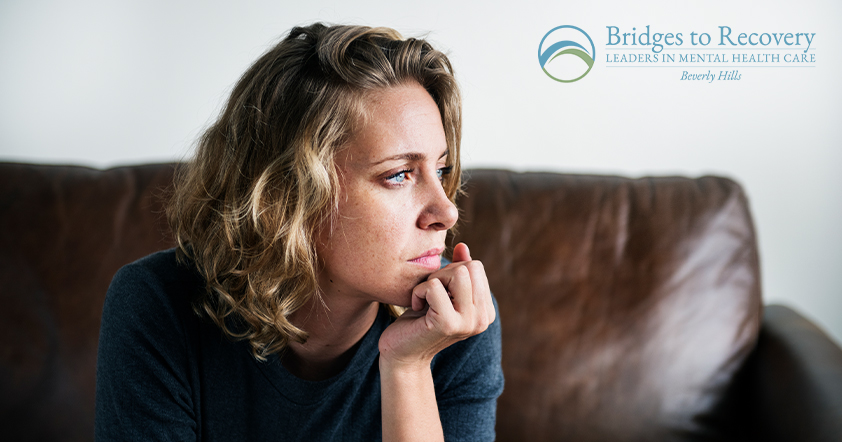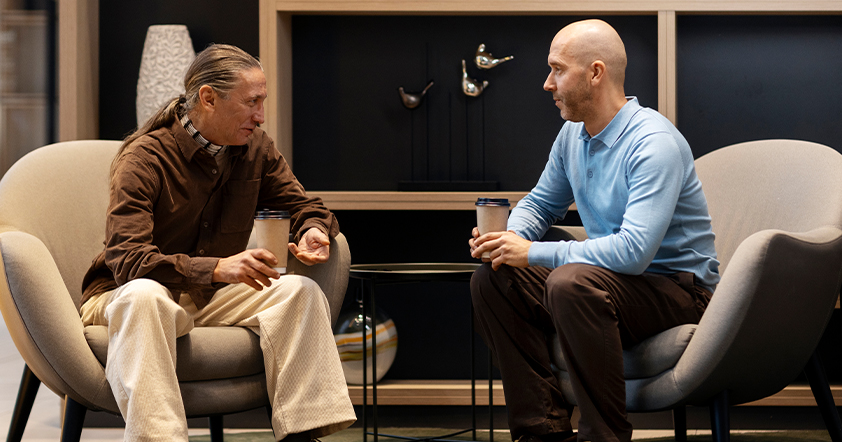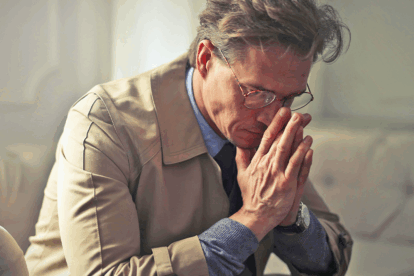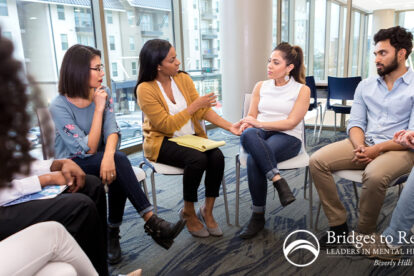The Connection Between Anxiety and Depression, and the Unique Concerns That Come With It

Each of these conditions can prove challenging to live with. Individuals experiencing symptoms of both simultaneously must manage incredibly complicated, and oftentimes painful, circumstances.
Why is this the case, and what can you do if your loved one is affected? Bridges to Recovery works closely with individuals experiencing these conditions, and we have answers. Let’s explore the connection between depression and anxiety.
Co-Occurring Depression and Anxiety: Why Does It Happen?
More research is necessary to find the complete answer to this question. However, there are some current theories.
One suggests anxiety and depression are both responses to stress, and these responses are closely linked and can influence one another.
Another is that anxiety and depression share many symptoms, such as insomnia and changes in eating habits, allowing them to be diagnosed together frequently. The symptoms of each condition can also be a self-reinforcing cycle. For example, someone who experiences intense social anxiety that keeps them from participating in social situations will likely experience isolation. This often leads to depression, which can cause further insecurity and anxiety.
We also know that anxiety and depression are both influenced by genetic and environmental factors – and often the same factors. One stressful event, such as the loss of a loved one, can cause anxiety in one individual and depression in another. It may also cause both.

The Overlapping and Individual Symptoms of Anxiety and Depression
As previously mentioned, some symptoms of anxiety and depression overlap. Others are unique to each condition.
Symptoms common to both depression and anxiety include:
- Mood changes and irritability
- Sleep disturbances and fatigue
- Restlessness and feeling on edge
- Trouble with concentration and memory
- Appetite and weight changes
Symptoms that characterize depression are:
- Feeling sad, hopeless, or empty
- Loss of interest in hobbies
- Feelings of guilt and shame
- Suicidal thoughts or ideation
Anxiety disorders may manifest through:
- Persistent nervousness, fear, or sense of impending doom
- Increased heart and respiration rate
- Fixation on a particular concern
- Avoiding situations that trigger anxiety
How Depression and Anxiety Affect People’s Lives
Anxiety and depression significantly impact people’s relationships and social lives. An individual with anxiety may cancel plans because they fear others judging them. One with depression may stay home due to deep fatigue. Someone experiencing both might stay home due to anxiety, and manage intense feelings of shame and worthlessness in response.
Work performance and participation in hobbies will likely decline. They will probably spend less time with friends and family, and more time alone. They may even spend more time on social media.
Depression and anxiety are a miserable combination for anyone. Chances of suicidal ideation are higher, and these conditions together are harder to treat than they are individually. Your loved one will require some grace. They will likely be irritable and may have more frequent mood swings and emotional outbursts. While mental health conditions are not excuses for poor behavior, they are explanations for them, and indications that the individual needs help.
How to Help Your Loved One With Anxiety and Depression: The Value of Patience and Professional Help
If your loved one is managing anxiety and depression simultaneously, they will require your patience. It might be difficult for them to complete tasks that are simple for people without mental health concerns. You can ask them if there is anything you can do to help. Encourage healthy sleep and eating habits, too.
Checking in on them regularly is also beneficial. Work to create a compassionate environment that empowers your loved one to share their thoughts and feelings without fear of judgment. Remind them that you love and care for them.
Also, understand that mental health conditions are bigger than you. While you can help, it’s unlikely that you can “cure” them entirely. Don’t put that pressure on yourself. Instead, enlist the help of a mental health professional. They are experts on depression and anxiety and can provide treatment that will help your loved one heal.

Anxiety and Depression Treatment in Beverly Hills
Depression treatment and anxiety treatment overlap in many ways. Any kind should consist of cognitive behavioral therapy (CBT) or other variations of talk therapy to address both simultaneously. If the mental health practitioner deems it helpful, medication may also be an option. Selective serotonin reuptake inhibitors (SSRIs) are a common choice in these cases, but it will vary depending on the individual.
Looking into treatment is the first step toward your loved one recovering from their depression and anxiety. Their future is still bright.
Bridges to Recovery provides clinical expertise and mental health treatment to clients in Beverly Hills and surrounding areas. Traditional residential facilities can prove overwhelming, especially for individuals with anxiety and co-morbid depression. We offer a private, peaceful environment that promotes healing from even the most complex mental health conditions. Our renowned team of specialists is ready to assist you and your loved one. Call 877-727-4343 today.
Bridging the gap to all-encompassing care.






